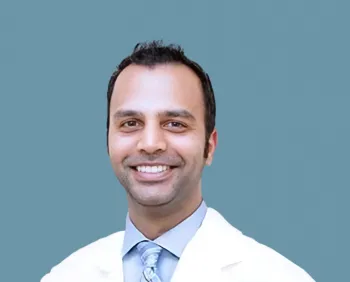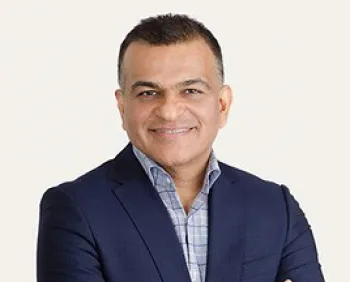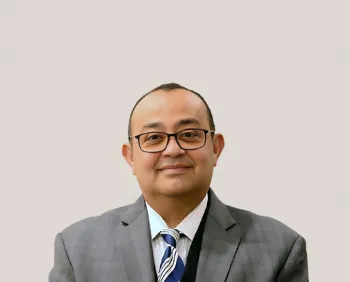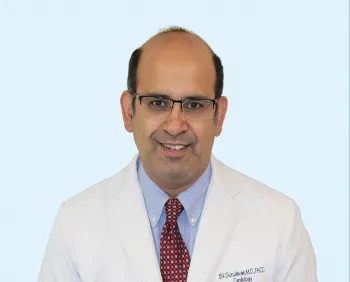
Happy tummy happy mind
Expert Care and Solutions for Gastrointestinal Problems
What is gastroenterology disorder?
Gastrointestinal problems are side effects that can be quite uncomfortable; patients frequently have loose stools, distended organs, blockages, or other difficulties processing food. It incorporates a detailed understanding of the typical function of the gastrointestinal organs, including material development through the stomach and digestive system (motility), processing and digestion of supplements into the body, waste removal from the structure, and the liver's function as an organ connected to the stomach. Peptic ulcer disease, colon polyps and malignant development, hepatitis, gastroesophageal reflux disease (indigestion), colitis, gallbladder, biliary tract disease, dietary problems, and pancreatitis are examples of common and harmful conditions. If you're having problems with your stomach, let our top gastroenterologist provide you with the care and attention at Sharmeen Sultana MD PLLC, Brooklyn you need. The area of medicine known as gastroenterology, or gastroenterology as a specialization, focuses on the normal functions and diseases of the stomach. In general, the examination of organs associated with the stomach involves both routine activity and perplexity.
What Are Gastrointestinal Symptoms?
You can receive prompt treatment by becoming aware of digestive problems. Constipation, bloating, heartburn, and indigestion are typical gastrointestinal problems that disturb a lot of people. If these symptoms are not identified, they might turn into chronic illnesses.
Patient’s expectation after a Gastroenterology appointment
A gastroenterologist is really skilled in the diagnosis and treatment of gastrointestinal illnesses due to their education and preparation. An unpleasant stomach, for instance, may seldom point to malabsorption illnesses like celiac disease or lactose intolerance. Future harm to the digestive system can be avoided by diagnosing these problems. Mild symptoms like nausea, upset stomach, etc. Additionally, some people may experience severe symptoms like blood in their feces. If you have gastrointestinal issues, you should get to the chamber of a gastroenterologist. As a result, digestive illnesses can be completely and accurately treated by a gastroenterologist.
They are able to finish the diagnosis process as doctors and procedure makers and, in many circumstances, even start a successful treatment plan. May sometimes be a sign of a deeper issue. The abdomen region's persistent discomfort is often one of the symptoms. Any new symptoms of digestive issues should be reported to a gastroenterologist. Other usual intestinal ailments that may need to be estimated by a gastroenterologist contain bloating, gas, and diarrhea.
What Is Treated by a Gastroenterologist?
Among the various problems they are trained to treat include, ulcers, inflammatory bowel disease, pancreatitis or pancreatic cancer, jaundice, celiac disease, along with other food intolerances and intolerances like food allergies, hemorrhoids, blood in the stool, and much more.
Modest worries like insistent diarrhea or constipation can be treated by a gastroenterologist, moreover complicated problems like polyps and colon cancer.
Colonoscopy:
In addition to finding polyps indicative of colon cancer, a colonoscopy also allows your doctor to remove polyps. Clinical tests of the upper GI tract, an endoscope is placed into the throat. For a more precise diagnosis, your doctor may also perform biopsies (tissue samples) on the problematic regions.
Endoscopy:
Simple endoscopy, endoscopic ultrasounds which may also look at the lower GI tract, or endoscopic retrograde cholangiopancreatography—all of which are used to look at the bile ducts and their surroundings—can all be done by your gastroenterologist.
Most common symptoms and indications for Gastric Irritation
Fortunately, adopting good lifestyle choices and caring for the gastrointestinal system can help avoid or lessen the severity of the majority of these problems. The Digestive tract covers the mouth, throat, gut, small bowel, large intestine, and anus. Together with the gallbladder, such organs make up the digestive system. Gastrointestinal diseases are any disease or condition that affects the area around the digestive system. The peritoneum, a sac, holds the whole digestive system together. The most common digestive diseases are congestion, inflammatory bowel syndrome, hemorrhoids, rectal fissures, perianal infections, colitis, intestinal polyps, carcinoma, etc. The digestive system is made up of several hollow organs that form a pathway from the mouth to the stomach.
• Functional bowel ailments
• Structural disorders
Initial consultation with a gastroenterologist
Sharmeen Sultana MD PLLC is the first type of gastroenterology clinic in Brooklyn with visiting time access to experienced gastroenterologists. Through the use of cutting-edge technology and essential treatments performed by specialists with the goal of making you feel your best, we are providing evidence-based, comprehensive, and result-driven therapies for all types of gastrointestinal disorders.
What do you need to do during the initial meeting with a gastroenterologist?
Bring all necessary paperwork or notes pertaining to your medical history with you to your initial consultation to get the most out of it. The experts at Sharmeen Sultana MD PLLC gastro Care inquire about your symptoms, medical background, and any therapies you have used.
It's possible that your gastroenterologist will schedule a long counted first session. Possibly shorter in the future.
Emergency GI Services Open Now
Sudden abdominal pain, vomiting blood, or severe diarrhea can be signs of a medical emergency. That’s why many people look for emergency GI services open now. Specialized gastroenterology clinics and hospitals in Brooklyn provide urgent care for life-threatening digestive issues. Immediate access to gastroenterologists can prevent complications from conditions like GI bleeding, bowel obstruction, or acute pancreatitis. Patients benefit from 24/7 availability of skilled doctors and emergency endoscopy services.
Virtual GI Consultation Services
The rise of telemedicine has made it possible to schedule virtual GI consultation services from the comfort of home. Patients with ongoing digestive problems can discuss their symptoms, share medical history, and receive follow-up care through video calls. This is especially helpful for busy families or those with mobility challenges. Brooklyn-based gastroenterologists now offer secure telehealth platforms where patients can get medical advice, prescriptions, and even referrals for diagnostic testing.
What skills do Gastroenterologists have?
A gastroenterologist conducts a variety of GI-related procedures, such as:
-
Endoscopic ultrasounds, which are employed to examine both the lower and upper GI tracts.
-
Small intestine capsule endoscopies.
-
Sigmoidoscopy: This technique examines any intestinal bleeding or discomfort.
-
Colonoscopy: polyps or cancer in the colon.
-
Endoscopic Retrograde Cholangiopancreatography: this operation deals with Subjects relating to the liver, gall, pancreas, and common bile duct.
-
Small intestine double balloon endoscopies.
-
Liver biopsies: fibrosis and inflammation.
Then get in touch with Sharmeen Sultana MD PLLC today to start living a better, happier life! The clinic team of experts is eager to collaborate with you. Their experts solely practice this area of medicine; thus, they can provide targeted knowledge for every patient's GI condition. To correctly identify and treat GI tract problems, gastroenterologists get extensive training. We carry out a variety of diagnostic procedures with cutting-edge technology in a welcoming, comfortable environment where patient care is always put first! One of the top gastroenterology clinics in the Brooklyn region is ours. You must visit a gastroenterologist.
Testing categories
Gastroscopy is a common technique that a gastroenterologist may carry out. It is a sort of endoscopy that is only performed on the digestive tract. Gastroscopy is a minimally invasive treatment that looks into your esophagus, stomach, and upper GI tract using a tiny, flexible camera. Your gastroenterologist in Sharmeen Sultana MD PLLC, Brooklyn, can utilize this technique to identify the source of your stomach discomfort, heartburn, bloating, vomiting, or unexplained weight loss. Checking for ulcers, cancer, or some other advances in the upper GI region, moreover, any foreign objects if someone has engulfed one, are some other causes to conduct a gastrostomy.
In addition to evaluating the stomach, a gastroenterologist may utilize various techniques to look for issues in the upper and lower GI tract. For instance, they could do a colonoscopy to look for lower intestinal issues, a capsule endoscopy to examine the small intestine, or an endoscopic ultrasound to examine organs like the pancreas, liver, or gall bladder that cannot be seen with conventional endoscopies.
Colonoscopy Screening Cost & Insurance Accepted
One of the most common questions patients ask is about the colonoscopy screening cost and whether insurance is accepted. Colonoscopy is a vital test for detecting colon cancer, polyps, and other intestinal problems. In the U.S., costs vary depending on the facility, but many insurance plans, including Medicare, cover the procedure as part of preventive care. Clinics in Brooklyn often assist patients by confirming coverage and explaining out-of-pocket expenses, making screenings more affordable and accessible.
Top queries to Enquire the Gastroenterologist
The gastrointestinal system's body parts are key to the development of breaking down the food that we eat. Finding GI (gastrointestinal) doctors that can assess your issues and treat them appropriately is simple, particularly in Brooklyn. In the context of this, it is desirable to organize a talk with a gastroenterologist expert. Doctors that treat digestive system disorders are known as gastroenterologists or gastrointestinal specialists. However, you may be ready for your appointment by thinking of some relevant questions to ask the doctors that will improve your communication. You could experience digestive problems if organs don't function properly.
Finding a gastroenterologist in Brooklyn, Sharmeen Sultana MD PLLC who allows you to express yourself by asking relevant questions about your symptoms might increase your level of pleasure.
What takes on at a gastroenterologist appointment?
-
The endoscope in use has a camera and light on one end.
This might be a Flexible Sigmoidoscopy, a test that examines the rectum and sigmoid, or a Colonoscopy, a test that examines the big colon all the way to the caecum.
• In certain situations, your GP is aware that certain test results will be required before your outpatient consultation and will obtain them for you. The Consultant will address this with you during your appointment. -
A gastroscopy typically lasts less than twenty minutes, however, the length of time might vary depending on the patient and if the procedure is being used to diagnose or treat a problem.
-
Some patients receive a direct referral for an upper or lower gastrointestinal endoscopy or gastroscopy.
-
Most patients are referred by their GP for a clinic visit to talk with a consultant before making a choice about an investigation and therapy.
The consultant can view pictures that the camera transmits from your stomach and duodenum on a screen.
Pediatric Gastroenterologist Accepting New Patients
Families often search for a pediatric gastroenterologist accepting new patients when their child has chronic stomach pain, constipation, or reflux. Pediatric GI specialists are trained to diagnose and treat digestive conditions in infants, children, and teenagers. In Brooklyn, many pediatric gastroenterology clinics welcome new patients, making it easier for parents to get timely help. With child-focused care, these specialists ensure accurate diagnosis and family-friendly treatment plans.
Start your preparation for Gastroenterology appointment
Most surgeons will have their patients undergo upper endoscopy with a gastroenterologist prior to bariatric surgery to assess the architecture of their stomach and esophagus. To reduce the danger of surgery, a gastrointestinal visit is required prior to bariatric surgery. During a gastrointestinal appointment, your stomach and esophagus are inspected. To understand how to manage them and reduce your risk of surgical complications, we specifically check for three things.
-
Indices of abnormalities in your esophageal mucosa
We will search for any symptoms of reactive variations in the mucosa (lining of the esophagus) during the gastroscopy that may develop into cancer. Reflux, infections, and drugs do not directly cause cancer, but they do produce a reactive variation in the esophageal lining that ups the likelihood of getting cancer. The mucosa, which is wet tissue, lines the inside of your mouth, nose, esophagus, and stomach.
Patients who have GERD (chronic gastroesophageal reflux disease), infections, or trauma from drug use are more likely to develop esophageal cancer.
-
Showing signs of a hiatal hernia:
We are searching for any indications of a hiatal hernia that might need to be fixed before having bariatric surgery at the GI appointment. However, excessive lifting and heredity can also contribute to the formation of a hiatal hernia, in addition to weight escalation being one of the most regular causes. Related to this, people who undergo weight gain following bariatric surgery may face a Hiatal hernia recurrence or even early formation. Following bariatric surgery, the formation of a hiatal hernia will behave similarly, resulting in reflux, chest discomfort, and intermittently vomiting. When a portion of the stomach swells through the hiatus, a hole in the diaphragm, is known as a hiatal hernia.
-
Stomach H-Pylori bacterium warning sign:
In order to lower the chance that a patient would have pain and difficulties following surgery, we must also decline the possibility that they may advance ulcers thereafter. H. pylori is a bacterium. Although the presence of H-Pylori bacteria in the stomach may not cause death, it can cause unpleasant symptoms such as stomach pains or burning sensations, nausea, vomiting, appetite loss, reflux, and bloating. We take particular care to particularly test for H-Pylori because it is present in the gut in over 25% of pre-op bariatric patients. Following bariatric surgery, a stomach infection (H. pylori) raises the threat of an ulcer.
First Gastroenterology Visit
Unfortunately, we have seen people who had colon, stomach, or esophageal cancer, Prior to the surgery, you will have some moderate anesthetic; nevertheless, you will be able to drive yourself home later that day. The gastroenterologist will next carry out an EGD. An endoscopic treatment called an EGD (esophagogastroduodenoscopy) enables your doctor to check your esophagus, stomach, and duodenum. Your gastroenterologist visit will often start with a full survey of your medical record.
However, by scheduling these sessions, we may treat these tumors at an early enough stage for the patient to experience the fewest side effects and the greatest possible results for their health. Only 30 to 60 minutes should pass during the procedure. Within a week, you should have your findings, and if possible, the gastroenterologist will clear you to proceed with your bariatric surgery. We occasionally discover that patients have other problems, such as colon bleeding or stomach problems, which may ultimately necessitate a colonoscopy, depending on your age and medical record.
Who treats children with gastroenterology?
Surgery is frequently needed to treat structural issues and blockages in order to avoid significant health issues. To check for physical abnormalities, the doctor often does a physical examination and obtains diagnostic pictures of the digestive system. The doctor can refer the youngster to a skilled pediatric surgeon if a condition cannot be resolved without significant surgery. Such conditions frequently need more thorough diagnostic techniques.
A pediatric gastroenterologist is an expert in spotting and treating issues with the digestive system in patients who are young. The majority of children who visit pediatric gastroenterologists are referred by doctors who provide primary care.
The gastroenterologist will discuss past medical results and inquire about symptoms with a new patient's parents in order to gain a basic knowledge of the issue. A pediatric gastroenterologist must graduate from medical school after four years and undergo up to seven years of clinical training.
The pediatric gastroenterologist can choose the best course of treatment after making a specific diagnosis.
Best Gastroenterologist Near Me
Many patients start their search with the best gastroenterologist near me when they experience digestive issues like abdominal pain, acid reflux, or persistent bloating. Finding a local specialist ensures timely access to diagnosis and treatment. In Brooklyn, clinics like Sharmeen Sultana MD PLLC provide expert gastroenterology care with advanced diagnostic tools. Having a nearby doctor also makes follow-up visits and long-term management easier.
Treatment Packages at the clinic
Patients today want clarity on costs and services, which is why many clinics provide treatment packages for common conditions like GERD, irritable bowel syndrome (IBS), or ulcer management. These packages may include consultations, diagnostic tests, follow-ups, and medications at a bundled price. Treatment packages not only make healthcare more affordable but also give patients a clear roadmap of their care plan.
Perfect Diet and Meal Plans
For many gastrointestinal conditions, lifestyle changes are just as important as medical treatment. That’s why doctors often recommend customized diet and meal plans for patients with acid reflux, Crohn’s disease, or irritable bowel syndrome. These plans focus on reducing trigger foods, increasing fiber intake, and balancing nutrition to support digestive health. In Brooklyn, gastroenterology clinics often work with dietitians to create practical meal plans that improve long-term outcomes.

Nancy Chen
Gastroenterology
Overview The treatment methods used by Dr.Nancy Chen for hepatology and gastroenterology diseases. Dr. Chen offers upper endoscopy, Video capsule...
Read more
Dr. Prateek Chapalamadugu, MD
Gastroenterology
Overview A professional gastroenterologist, Dr. Prateek Chapalamadugu, MD, gives patients in New York, Brooklyn, and the Bronx the first-rate...
Read moreServices
Opening Hours
- Monday
- 9AM – 6PM
- Tuesday
- 9AM – 5PM
- Wednesday
- 9AM – 4PM
- Thursday
- 9AM – 6PM
- Friday
- 9AM – 4PM
- Saturday
- 9AM – 2PM
- Sunday
- Closed
Make an appointment
Some Frequently Asked Questions (FAQs)
The patients who were asked about the physician in question expressed high levels of satisfaction. The physician is known for providing attentive and careful treatment to her patients. Additionally, she sets aside ample time to examine the case history to explain the current state of the patient, so that it is easy for them to understand.
Absolutely! Click on the Orange banner on the right, that says "Make an Appointment". Additionally, doctor’s Google business profile has a link to the appointment page, also.
Dr. Sharmeen, a dedicated Primary Care Physician, strives to foster good health and prevent illnesses within the Brooklyn community. Whether it's conducting routine check-ups, addressing common ailments like colds and coughs, or managing more serious symptoms, she offers comprehensive treatment, guidance, and collaborates closely with her team of specialists to ensure comprehensive care. Her services encompass a wide range of medical needs, including hypertension management, annual physicals, allergy consultations, pediatric care, arthritis, cholesterol management, obesity, respiratory infections, strep throat, rashes, minor injuries, and overall well-being for patients of all ages, from young children to adults.
Dr. Sharmeen Sultana's primary language of practice is English, she is fluent in Bengali, she understands and is able to communicate in Hindi and Urdu. In addition, there are Arabic and Spanish speaking members in the staff.
Doctor Sultana is family physician; her primary goal is to promote health and prevent diseases. She is a top-rated Primary Care Physician in Brooklyn. She provides comprehensive care for every patient regardless of age, gender, illness, or organ system. By collaborating with a team of specialists conveniently located within her practice, she seamlessly integrates and prioritizes multiple concerns, aiming to provide holistic and synthesized solutions for her patients.
While Dr. Sultana gladly accepts all major insurances, it is advisable to consult with the front desk attendant to obtain confirmation. As regulations and compliance requirements can undergo changes without prior notice, it's always prudent to verify the current status of accepted insurances.
Dr. Sharmeen Sultana has a rating of 4.50/5 from 164 patients (on health.usnews.com) who have reviewed her which indicates that most of the patients are satisfied with her services. However, there were areas where patients gave lower ratings regarding time spent on patients and exam thoroughness. Based on patient compliance and outcomes Dr. Sultana has a rating of 4 out of 5 indicating that patients will see her again and are satisfied with her treatment results. Dr. Sharmeen Sultana is rated 4 out of 5 as a cause of action, and we find the patients to be friendly and thoughtful. Dr. Sultana generally receives positive reviews from patients, although there are some differences in patient opinions. It's crucial to keep in mind that personal perspectives can differ, and seeking guidance from a healthcare expert from a wide range of sources is always a wise choice.
Welcome to our Privacy Policy page! When you use our web site services, you trust us with your information. This Privacy Policy is meant to help you understand what data we collect, why we collect it, and what we do with it. When you share information with us, we can make our services even better for you. For instance, we can show you more relevant search results and ads, help you connect with people or to make sharing with others quicker and easier. As you use our services, we want you to be clear how we’re using information and the ways in which you can protect your privacy. This is important; we hope you will take time to read it carefully. Remember, you can find controls to manage your information and protect your privacy and security. We’ve tried to keep it as simple as possible.
Our customers have the right to access, correct and delete personal data relating to them, and to object to the processing of such data, by addressing a written request, at any time. The Company makes every effort to put in place suitable precautions to safeguard the security and privacy of personal data, and to prevent it from being altered, corrupted, destroyed or accessed by unauthorized third parties. However, the Company does not control each and every risk related to the use of the Internet, and therefore warns the Site users of the potential risks involved in the functioning and use of the Internet. The Site may include links to other web sites or other internet sources. As the Company cannot control these web sites and external sources, the Company cannot be held responsible for the provision or display of these web sites and external sources, and may not be held liable for the content, advertising, products, services or any other material available on or from these web sites or external sources.
You can view or edit your personal data online for many of our services. You can also make choices about our collection and use of your data. How you can access or control your personal data will depend on which services you use. You can choose whether you wish to receive promotional communications from our web site by email, SMS, physical mail, and telephone. If you receive promotional email or SMS messages from us and would like to opt out, you can do so by following the directions in that message. You can also make choices about the receipt of promotional email, telephone calls, and postal mail by visiting and signing into Company Promotional Communications Manager, which allows you to update contact information, manage contact preferences, opt out of email subscriptions, and choose whether to share your contact information with our partners. These choices do not apply to mandatory service communications that are part of certain web site services.
Our web site uses the data we collect for three basic purposes: to operate our business and provide (including improving and personalizing) the services we offer, to send communications, including promotional communications, and to display advertising. In carrying out these purposes, we combine data we collect through the various web site services you use to give you a more seamless, consistent and personalized experience. However, to enhance privacy, we have built in technological and procedural safeguards designed to prevent certain data combinations. For example, we store data we collect from you when you are unauthenticated (not signed in) separately from any account information that directly identifies you, such as your name, email address or phone number.
We share your personal data with your consent or as necessary to complete any transaction or provide any service you have requested or authorized. For example, we share your content with third parties when you tell us to do so. When you provide payment data to make a purchase, we will share payment data with banks and other entities that process payment transactions or provide other financial services, and for fraud prevention and credit risk reduction. In addition, we share personal data among our controlled affiliates and subsidiaries. We also share personal data with vendors or agents working on our behalf for the purposes described in this statement. For example, companies we've hired to provide customer service support or assist in protecting and securing our systems and services may need access to personal data in order to provide those functions. In such cases, these companies must abide by our data privacy and security requirements and are not allowed to use personal data they receive from us for any other purpose. We may also disclose personal data as part of a corporate transaction such as a merger or sale of assets
Our store collects data to operate effectively and provide you the best experiences with our services. You provide some of this data directly, such as when you create a personal account. We get some of it by recording how you interact with our services by, for example, using technologies like cookies, and receiving error reports or usage data from software running on your device. We also obtain data from third parties (including other companies). For example, we supplement the data we collect by purchasing demographic data from other companies. We also use services from other companies to help us determine a location based on your IP address in order to customize certain services to your location. The data we collect depends on the services and features you use.
Our Doctors
Our Doctors

Family Physician, Primary Care Doctor
Dr. Sharmeen Sultana
I am dedicated to keep the community healthy through preventive care.
Office Hours
- Monday
- 9AM – 6PM
- Tuesday
- 9AM – 5PM
- Wednesday
- 9AM – 4PM
- Thursday
- 9AM – 6PM
- Friday
- 9AM – 4PM
- Saturday
- 9AM – 2PM
- Sunday
- Closed


